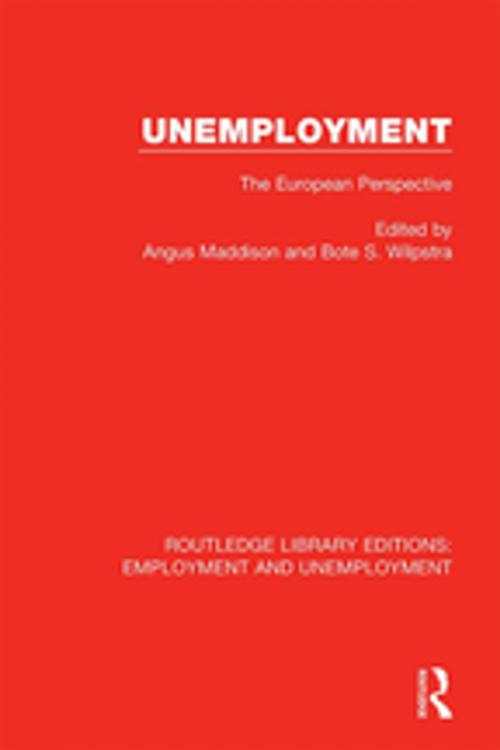Unemployment
The European Perspective
Business & Finance, Economics, Nonfiction, Social & Cultural Studies, Social Science| Author: | ISBN: | 9780429675164 | |
| Publisher: | Taylor and Francis | Publication: | December 7, 2018 |
| Imprint: | Routledge | Language: | English |
| Author: | |
| ISBN: | 9780429675164 |
| Publisher: | Taylor and Francis |
| Publication: | December 7, 2018 |
| Imprint: | Routledge |
| Language: | English |
First published in 1982. Unemployment was a major scourge of the advanced capitalist countries in the 1930s, but in the golden age of post-war expansion which lasted until 1973, it had seemingly been vanquished by enlightened economic policy. Since 1973, unemployment has re-emerged as a major problem, along with accelerated inflation and problems of structural adjustment imposed by soaring energy prices.
The rise in European unemployment came in two surges as a result of the generalised recessions of 1974-5 and 1980-1. At the beginning of 1982 unemployment in the European Community was running close to 10% of the labour force compared with a ‘norm’ of under 2% in the 1960s.
These abrupt and serious changes in the labour market have created major new dilemmas for economic policy and have stirred significant and acrimonious theoretical controversy.
For this reason it is useful to analyse the policy issues and the academic debate in a comparative perspective. The present volume contains three comparative papers on the employment policy discussions in Germany, the Netherlands and the UK as well as papers examining the theoretical adequacy of Keynesian, monetarist, structuralist and Marxist reactions to the new issues. The papers are all accompanies by a critique from the discussants.
First published in 1982. Unemployment was a major scourge of the advanced capitalist countries in the 1930s, but in the golden age of post-war expansion which lasted until 1973, it had seemingly been vanquished by enlightened economic policy. Since 1973, unemployment has re-emerged as a major problem, along with accelerated inflation and problems of structural adjustment imposed by soaring energy prices.
The rise in European unemployment came in two surges as a result of the generalised recessions of 1974-5 and 1980-1. At the beginning of 1982 unemployment in the European Community was running close to 10% of the labour force compared with a ‘norm’ of under 2% in the 1960s.
These abrupt and serious changes in the labour market have created major new dilemmas for economic policy and have stirred significant and acrimonious theoretical controversy.
For this reason it is useful to analyse the policy issues and the academic debate in a comparative perspective. The present volume contains three comparative papers on the employment policy discussions in Germany, the Netherlands and the UK as well as papers examining the theoretical adequacy of Keynesian, monetarist, structuralist and Marxist reactions to the new issues. The papers are all accompanies by a critique from the discussants.















